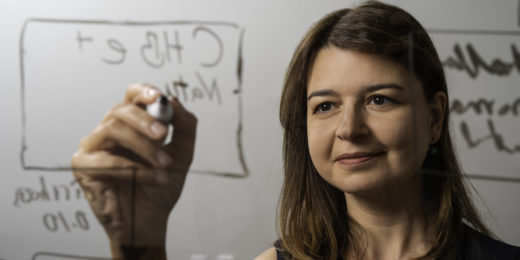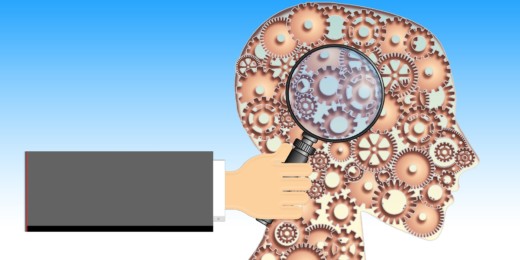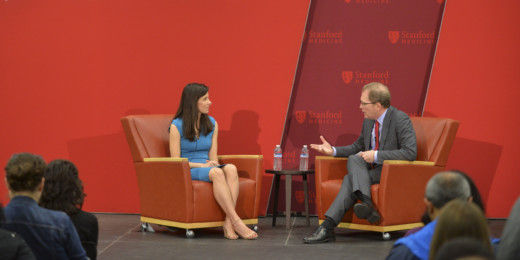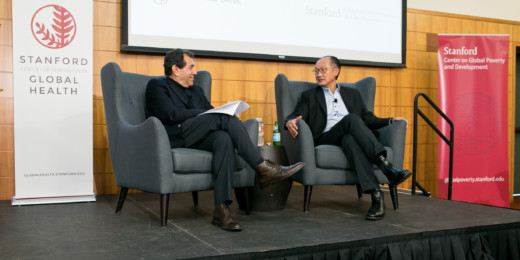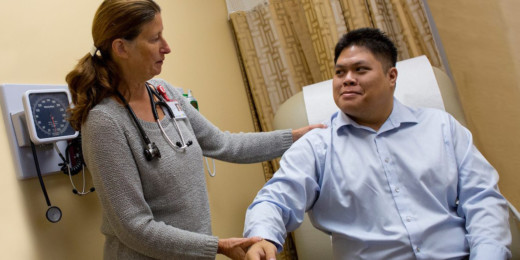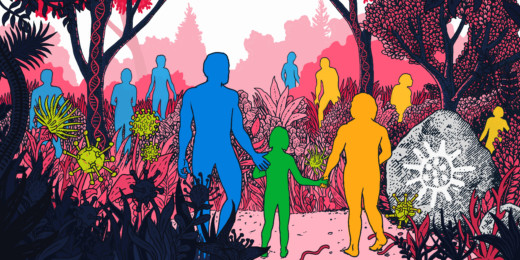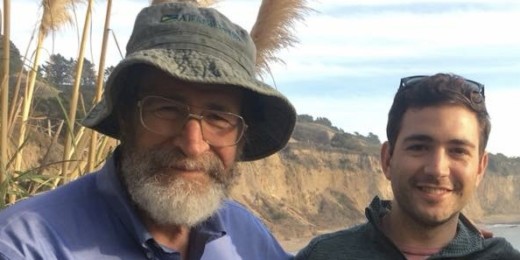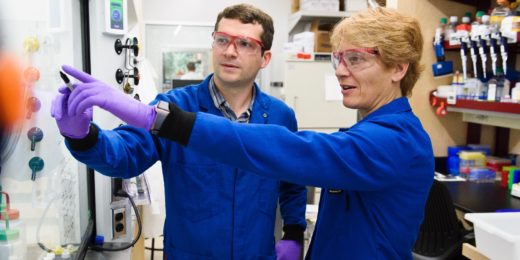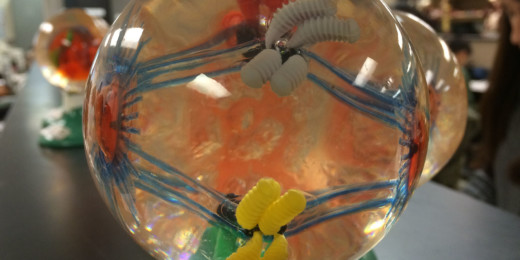Decision scientist Mehlika Toy is working with the WHO to help eliminate the public health burden of hepatitis B by the year 2030.
Month: October 2018
More than 100 patients with mystery diseases find answers
A network of doctors that aims to diagnose mystery diseases has named 31 newly identified conditions and diagnosed more than 100 previously unsolved cases.
“Invadopodia” key to spread of breast cancer cells, Stanford researchers find
Stanford researchers have learned that cancer cells can batter their way into new territory, rather than relying on dissolving chemicals.
The unbearable lightness of being wrong
In this Stanford Medicine Unplugged essay, Yoo Jung Kim discusses how she learned that it was okay not to know everything as a medical student.
Promoting gender diversity in research
A new paper outlines strategies to promote gender diversity in research teams, which can also generate new questions, techniques and results.
Considering the challenges posed by technology that tracks whether you took your meds
Digital medicine advances prompt call for more study about potential implications and ethical issues for patients and clinicians.
Spending mindfully: A challenge to pay attention to your wallet
Stanford's WELL for Life programs challenges participants to spend mindfully, in an effort to understand the relationship between well-being and finances.
Technology, privacy and journalism in focus at the Dean’s Lecture Series
At a recent conversation hosted by Dean Lloyd Minor, journalist and entrepreneur Jessica Lessin discusses the state of technology and journalism.
World Bank Group leader addresses global health community at Stanford
Jim Yong Kim shared insights from his experience at the helm of global health and financing organizations at a recent address on campus.
New research findings could give pediatric brain tumors a one-two punch
Cancerous tumors cause disease in two ways: they grow and spread. But a new immune therapy approach may be able to target both problems simultaneously.
When health professionals have empathy, patients aren’t the only ones who benefit
Empathy is a skill that physicians can learn and, writes Dean Lloyd Minor, it’s definitely a skill worth learning.
Inherited Neanderthal genes protect us against viruses, study shows
Stanford scientists have found that viral infections shaped human genome evolution after interbreeding with Neanderthals 50,000 years ago.
Text from Mom: “Dad won the Nobel Prize”
A late-night phone call informed a Stanford doctor that his father was named a chemistry laureate for work that helped others create drugs from antibodies.
An interdisciplinary future for ChEM-H: Catching up with Carolyn Bertozzi
Carolyn Bertozzi, the co-director of Stanford's interdisciplinary program ChEM-H, reflects here on the program and her goals for the future.
“Mitotic catastrophe” describes how aged muscle stem cells die, and provides clues to keeping them healthy
'Mitotic catastrophe' hampers the ability of aged muscle stem cells to repair damage. Manipulating this process could lead to new therapies for old muscle.
Understanding AFib: Why do I have this? Should I take blood thinners?
In the second piece in a the Understanding AFib series, physician Randall Stafford examines which patients should use blood thinners.


